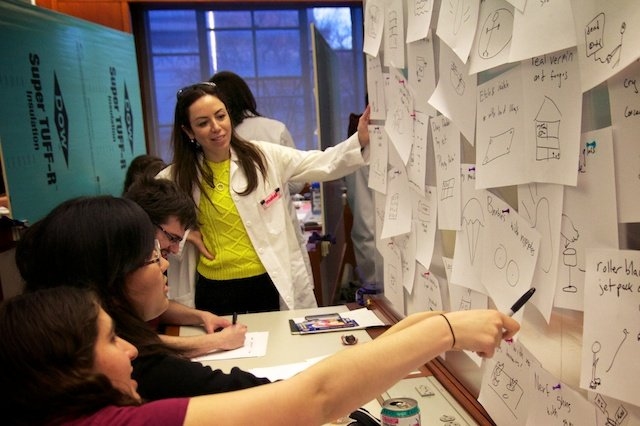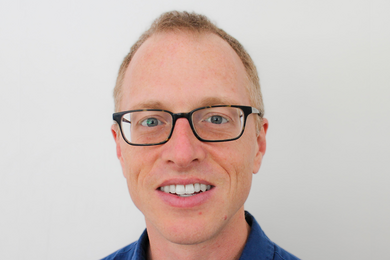Thanks to the support of King Fahd University of Petroleum and Minerals (KFUPM) and Saudi Aramco, the Center for Clean Water and Clean Energy (CCWCE) has established a postdoctoral fellowship program for Saudi Arabian female scientists and engineers. CCWCE, located in the MIT Department of Mechanical Engineering, administers the Ibn Khaldun Fellowship program, which launched in 2012 in collaboration with other Saudi universities.
“The Ibn Khaldun Fellowships were created with the aim of giving Saudi Arabian women PhDs the opportunity to conduct research at MIT with our faculty,” says Professor John H. Lienhard, director of CCWCE at MIT and KFUPM. “Our faculty have had many years of productive collaboration with various institutions in Saudi Arabia, and the Ibn Khaldun Fellowships form a part of our overall portfolio of activities with men and women from the Kingdom. We are grateful to both KFUPM and Saudi Aramco for funding this program.”
The fellowship’s first fellow, Malak Al-Nory, began at MIT in September 2012, under the guidance of mechanical engineering professor Stephen Graves. Al-Nory, an assistant professor at Effat University in Jeddah, Saudi Arabia, received her undergraduate degree and master’s degree from the King Abdulaziz University, and her PhD from George Mason University. Her research, which focuses on the modeling and optimization of supply chains and mathematical programming models for strategic and operational planning, led her to an interest in desalination systems modeling and optimization. She is now dean of graduate studies and research at Effat.
While at MIT, Al-Nory’s work with Graves led them to define the supply chain components and activities for water desalination. The two also proposed systematic methodologies and mathematical models to optimize the desalination supply chain and provide feasible, economical, and environmentally aware system designs. Together, Graves and Al-Nory coined the term “water desalination supply chain.”
“The fellowship at MIT has given me great exposure to a world-class educational process and allowed me to build connections with top scientific research communities,” Dr Al-Nory says. “There is no doubt that this opportunity has been the greatest honor Effat has offered me.”
The Ibn Khaldun Fellowship program was recently expanded through the support of Saudi Aramco, allowing an additional five to 10 fellows to study at MIT for one year each, for the next five years. The first cohort of Aramco sponsored fellows was admitted to the program starting in the fall 2013.
One current fellow, Sumayah Al Solaiman, says, “It’s great to be in such a creative and productive academic environment, where meeting interesting people and discussing ideas is the norm. I’m looking forward to building ties with MIT that will last a lifetime and benefit my students and university in Saudi Arabia."
Fellow Jwaher Al Ghamdi added, “Since the start of Ibn Khaldun’s Fellowship, the positive work environment and people around us at MIT have had a great impact on our motivation and focus. It has given us the opportunity to deepen our expertise and reach our goals as researchers and as workgroup members. I’m grateful for all the assistance and support that we have in the Center for Clean Water and Clean Energy at KFUPM and MIT. I feel optimistic about the consequences that will accumulate on our career paths as well as our personal lives.”
The Ibn Khaldun Fellowship program allows Saudi Arabian women with PhDs to conduct research with MIT faculty.
Publication Date:

Caption:
Malak Al-Nory mentors 2.00b students during her time at MIT as an Ibn Khaldun fellow.
Credits:
Photo courtesy of the Center for Clean Water and Clean Energy





